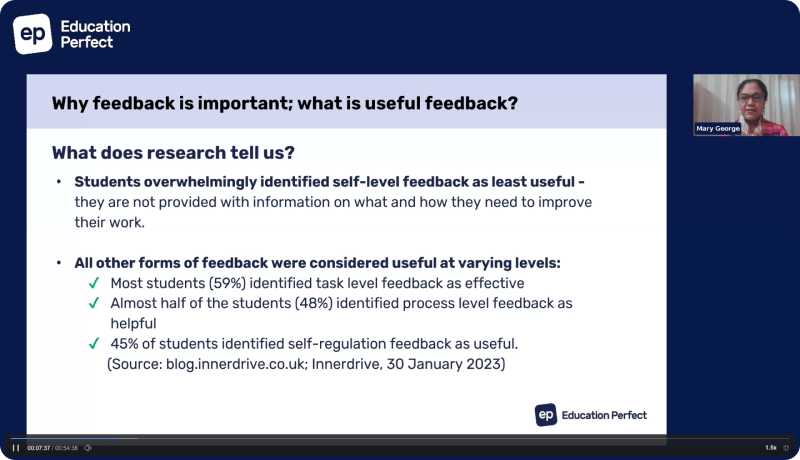Fail-Forward: How to use games to teach students about failure.

When I was eighteen I was working at the supermarket in my hometown and my Year 12 English teacher approached me at the lotto desk, and while she bought her ticket, she said to me “I thought you’d be somewhere better by now”. It was a loaded question, and a surprising one. She’d always liked me when I was in her class, but I was pretty sure she knew that in Year 12 I failed English, and that I’d run off to a different school for Year 13 because I couldn’t face the disappointment in me that I was sure my teachers would have. I was embarrassed, and I laughed it off while she was standing there, but it stuck in me like a thorn. I felt like she was judging me, telling me I hadn’t lived up to my potential, and more than just failing Year 12 of high school (and then Year 13, the year after).
But over time I’ve thought about it, and I’ve recently realised that she didn’t remember that I’d looked at the end of year exam paper, panicked, and left never having done the work. She remembered what I was like as a student, the conversations we’d had, and the fact I’d been engaged. She remembered giving me extra books to read because she thought I’d find them interesting.
These days, I look back on walking out on my exams in Year 12 and I think about the 16 year old I was, the absolute terrible state my mental health was in, and honestly I’m surprised I only missed out on passing the year by one test! It’s not a huge surprise that I wasn’t engaged in my schoolwork while I struggled to reconcile the Queer identity I knew I was growing into with the incredibly complicated relationship I had to faith and the church. Especially when I consider I was deliberately avoiding getting support.
But I was so scared of failing that when I missed out on Level 2 of NCEA by a single credit, I told my Mum that “Everything would be better if I wasn’t at that school!” and insisted on transferring, even if it was to the Catholic school (the only other school in town), where I had no friends. That was better than ever seeing my teachers again after failing.

Fast forward to being 21, and I drop out again. This time of university, during the second year of a degree with no real path that can be considered a major. I was taking English and Cinema Studies and Art History and Advertisement, and I was so burned out by illness, my part time job, and by some complications in my home life that I just gave up. I stopped showing up to classes, didn’t turn in work, and when the time came to re-enroll for semester 2, I just didn’t do it.
I wouldn’t go back to that university again, though I did eventually graduate with Honours in English somewhere else.
I was so convinced that despite good relationships with my professors and tutors, and having proved I could do the work, if they knew I’d failed to hand in even one essay, they’d consider me a failure. So I wrote myself off. To me, my value was wound up in my successes, and any failure to live up to expectations removed that value.
So how do we help alleviate that feeling in other people? Personally I’ve gotten better at failing by continuously running into it. Every time I fail at a situation and it doesn’t ruin my life, and the people I respect and love around me don’t abandon me, it proves the horrible part of my brain that believes I only have value when I succeed, wrong.
But experience at failure doesn’t come without cost. If you’re failing for the first time in late high school, like happened to me, it comes with incredible mental stress. It can come at the cost of your dreams for the future, your self worth, even friendships when the mental stress leads to self isolating behaviours.
Or at least, it doesn’t come without cost when it happens in real time and in real life. But there are ways to model failing. Treating failure as a normal part of life and being open with the young people in your life about your own failures can help them to see it’s not the end of the world. Demonstrating care and support for people in your life, or public figures, who have failed at something can show that their value isn’t so tied up in their success. You just need to take a look at Simone Biles’ reaction to people celebrating her choice to prioritise her health during the Tokyo Olympics to see how important that is.
And then there’s simulating failure. Playing out the process of failing, recovering and trying again, or trying something new, in a fictional situation where nobody real is going to pay a cost. A great way to do this is through table top role playing.
You may not be familiar with the term, but you’ll have heard of the phenomenon. Table Top Role Playing Games (TTRPGs) are games that use imaginary scenarios and role playing to tell a story collaboratively. The most famous example is Dungeons and Dragons, but there are thousands of other TTRPGs out there. The one I’d like to show as an example is called Masks: A New Generation.
Masks, by Brendan G. Conway, is a game that could be played at any age (though it’s aimed at teenagers), and in it players take up the role of teenage superheroes who are trying to find their own place in a world that has already seen three generations of supers before them.
The mechanics are fairly simple. When a character wants to take an action they roll 2 six- sided dice and add a number provided by their Label. Labels are signs of how the character sees themselves, like “Danger”, “Mundane”, “Superior”, “Savior”, or “Freak”, and can be moved around by people who have influence over the teen, like their friends, parents and teachers.
Once the label has been added, it maps to success levels. A 7 to 9 is a mixed success, which usually means you do what you set out to do, but there’s a consequence or complication. A 10 or higher means you did it with no qualifications, and a 6 or lower means that you failed.
But it’s not as simple as that. Masks is what is known as a fail-forward system, where instead of halting your progress, failing invites the person playing the wider world and the supervillain to take an action that complicates the situation. Failing doesn’t mean you stop and try again. It means the world gets more complex, and you need to look for a new opportunity to stop the villain (or sneak out of the house to meet up with your friends).
And unlike a board game where you might get left in the dust by the people you’re playing with when something bad happens (think getting thrown in jail in Monopoly), there are other benefits to failing. A teammate could help you out, and give you an extra point to get you from 6 to 7 on the roll, strengthening your relationship with them. But even if they can’t help, you’ll mark tick boxes called “potential” that are how your character grows more powerful, or more into their image of themselves.
Because Masks is about collaborative storytelling, players get the opportunity to suggest ways their plans could have gone wrong when they roll a 6 or lower, ask for help, or describe how their failure makes their character feel, and how it changes their behaviour.
In essence, the game is a safe way to abstract and have conversations that might be otherwise hard to approach. Because the characters are teenagers, they have teenage issues, not just superhero ones. If one of your teammates is upset after a failure, you can roll to try and comfort them, and you can mark a point of “potential” if they open up to you and you have a discussion about what has happened.
Throughout the game, there are opportunities to talk through complicated feelings, collaborate on consequences, and embrace the opportunities failure can present. And you get to do cool superhero stunts in between. What’s not to love?
Masks is by no means the only fail-forward game out there either. There’s one for any genre you can think of. But it’s a great example of how failure complicates our lives, but gives us new opportunities, and shows us different ways to use our potential.
If I hadn’t stuck around my hometown working in the supermarket and trying to make up the last few grades I needed to finish high school, I wouldn’t have discovered that I was capable of working a full time job without sacrificing my creative hobbies. If I hadn’t dropped out of university the first time I never would have moved to the university where I learned about how games use their mechanics to support their storytelling, so I wouldn’t even be writing this article.
So how are we teaching the young people around us to embrace failure and fail-forward?




